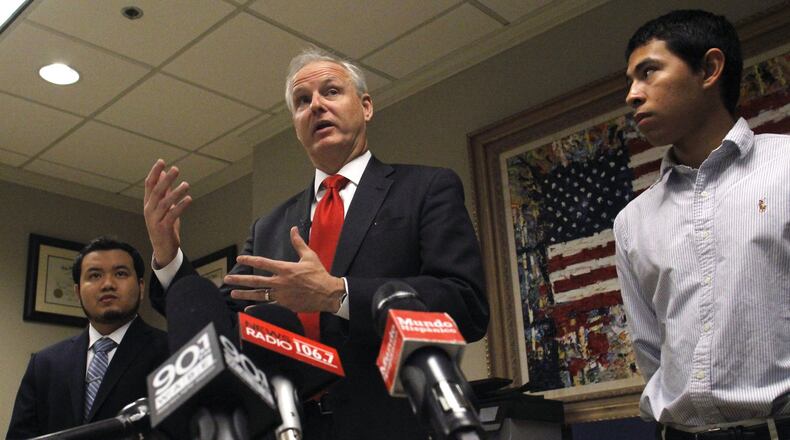The Georgia Supreme Court on Monday decided against hearing a lawsuit in favor of allowing immigrants who have been granted a temporary reprieve from deportation to pay in-state tuition at state colleges and universities, handing the young plaintiffs a major setback.
The high court's one-page opinion does not give a reason for refusing to take up the case. But its decision came after the Georgia Court of Appeals ruled against the lawsuit in October, reversing a lower court's decision that said participants in the Obama era's Deferred Action for Childhood Arrivals program, or DACA, should be permitted to pay in-state tuition.
DACA grants two-year work permits and deportation deferrals to immigrants who were brought here illegally as children. Since DACA started in 2012, 21,600 Georgians have been accepted into the program.
Charles Kuck, an Atlanta-area immigration attorney who represented the DACA recipients in Georgia’s legal case, said they would continue to “fight in the courts when possible, in the legislature when in session, and before the Board of Regents continuously, until every willing student, regardless of status, can pursue their full educational goals and desires.”
“We are disappointed that the Georgia Supreme Court has denied us the ability to continue fighting for what is moral, just and fair — the right of taxpaying, Georgia residents with DACA to pay in-state tuition at the colleges and universities that their tax dollars support,” he said in a prepared statement. “No state that denies willing students an advanced education has the right to call itself great for business.”
The appeals court’s decision from October said the DACA recipients who sued “failed to carry their burden of showing that the DACA policy had the force and effect of a federal law.” The court also said the plaintiffs had failed to show “that, even if the DACA policy had the force of law, it created a clear legal duty that required” the Board of Regents to grant them in-state tuition.
Further, the board’s tuition rules, the court said, give it “broad discretion.” Those rules closely track a 2008 state law that says noncitizens cannot pay the in-state rate unless they are “legally in this state.” The plaintiffs in the case pointed to federal records that say DACA recipients are lawfully present in the U.S.
The Trump administration has moved to rescind the DACA program, but that decision is stalled in federal courts amid legal challenges.
About the Author
Keep Reading
The Latest
Featured





